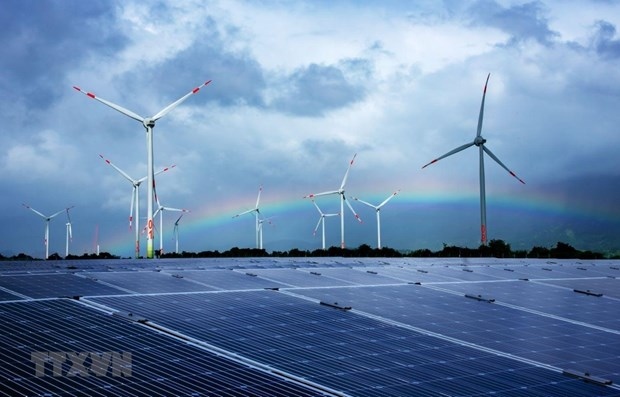Southeast region gears towards green, sustainable economic development
The Southeast region, with its role as an economic locomotive of the country, has accelerated the implementation of green economic development plans and strategies. The aim is to promote economic restructuring associated with changing growth models and integrating green growth into the socio-economic development plan.

A green economy has become an inevitable trend in countries toward achieving economic growth and maintaining environmental sustainability.
In the process of socio-economic recovery and development after the COVID-19 pandemic, economic activities of Vietnam in general, and the Southeast region in particular are gradually becoming vibrant again. Many localities and businesses have developed and issued strategies and action plans to promote green and sustainable product innovation models.
According to Secretary of the Party Committee of Ho Chi Minh City Nguyen Van Nen, despite facing many difficulties and challenges, the city recorded a rapid rebound of socio-economic development. The city’s gross regional domestic product (GRDP) grew by over 9% in 2022, accounting for about 48.4% of the Southeast region’s GRDP.
For HCM City, the idea of a green economy, which both satisfies the needs of economic growth and solves environmental challenges, has been discussed by researchers. Most of the studies agree on the view that green economic development focuses on three main pillars of industry, agriculture and services.
According to Deputy Minister of Planning and Investment Nguyen Thi Bich Ngoc, promoting eco-industrial park development will help mobilise great resources from the private sector for green industrial solutions. It will also ensure energy security, thus significantly contributing to Vietnam's efforts to respond to climate change, promoting green growth and circular economy, demonstrating Vietnam’s political determination in implementing its commitments on sustainable development.
Vice Chairman of the People’s Committee of HCM City Vo Van Hoan said, HCM City is expected to develop into a smart city by 2030. Therefore developing a green economy is an inevitable requirement to ensure the goal of economic modernisation and environmentally sustainable development, and improve the city’s ability in response to climate change.
The municipal authority will closely coordinate with the Ministry of Planning and Investment and UNIDO in implementing the project “Eco-industrial parks intervention in Vietnam - Perspective from the Global Eco-Industrial Park Programme" funded by the Swiss State Secretariat for Economic Affairs (SECO), Hoan said.
Results of the project will be a premise to replicate the conversion of existing industrial parks into eco-industrial park models in the city and across the country, he added.
HCM City will also invest more resources in, and sketch out more specific and professional plans for the process of green and digital transformation, he noted.
|
Dong Nai province has also focused on green and environmentally friendly economic development through attracting high-quality projects, aiming to ensure sustainable economic development.
According to Deputy Head of the Dong Nai Industrial Zones Management Authority Pham Van Cuong, companies providing industrial park infrastructure services in the locality have agreements that bind investors to strictly monitor wastewater quality.
Le Xuan Huy, Deputy General Director of the CP Vietnam Livestock JSC in Dong Nai province, said his firm’s production also pays attention to meeting world standards related food quality, safety, and environmental friendliness.
